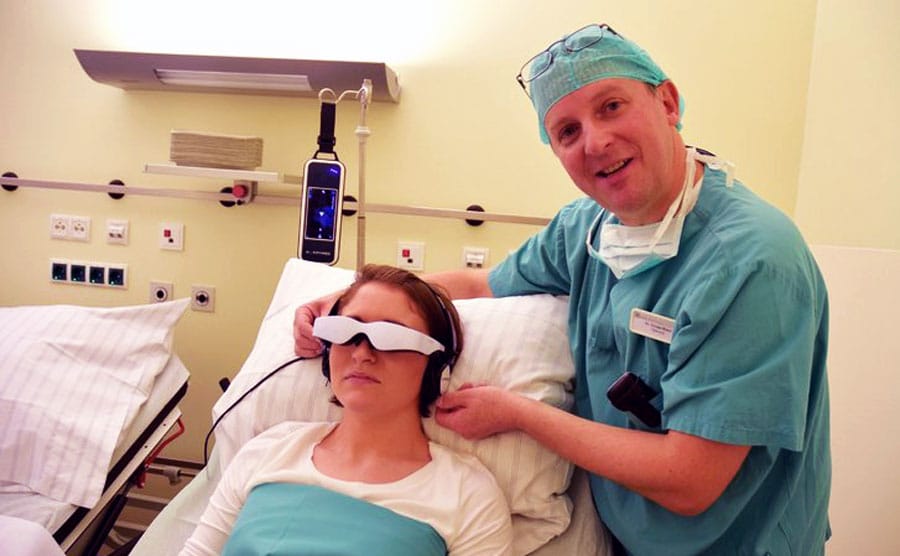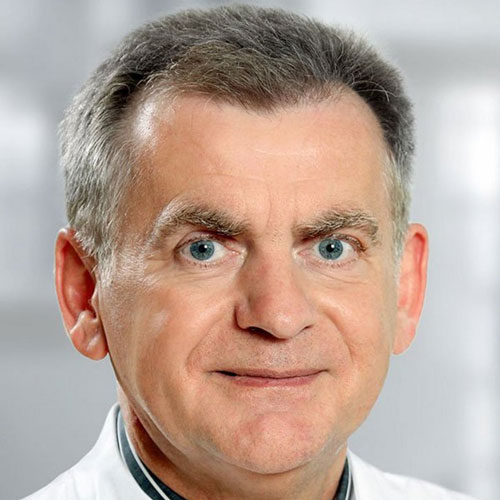
The HappyMed video glasses have been inspiring many in the Helios clinic chain since 2017. The Helios Clinic in Schleswig, in Schkeuditz or the Heart Center Leipzig and the Helios Clinic Vogelsang offer their patients the video glasses.
"Our patients are absolutely thrilled with the new offer. "We offer the glasses especially to patients who want to distract themselves under a partial anesthetic or who are very excited before the operation. Immersed in the world of vision and sound, they quickly forget that a medical procedure is about to happen or that they are currently in the operating room. "

Report from MDR aktuell - "Glasses instead of pill": HappyMed in action in the Helios Schkeuditz
"We are totally satisfied. The employees have completely accepted the system. The patients are incredibly happy about it. They are really well distracted, they are completely relaxed. "

"The HappyMed video glasses are easy to use and have a large selection of films. What particularly convinces me is that patient acceptance is extremely high. We look after patients in the areas of gynecology & obstetrics, pediatric surgery and oral and maxillofacial surgery and have received mostly positive feedback. "

"In the beginning, HappyMed was ridiculed as a technical toy. Now all patients who need medicinal sedation are treated with HappyMed first. We have learned that audiovisual decoupling with HappyMed is more comfortable for the patient and has no side effects. This noticeably relieves our team in the operating room and in the recovery room. "

"The video glasses are a good offer for patients to be able to distract themselves in the perioperative area. For me, this is an obvious benefit for patient wellbeing. We certainly have more uses than devices at the moment. "

Heart Center Leipzip: HappyMed in the EPU laboratory during cardiac pacemaker and defibrillator implantations
The Leipzig Heart Center would like to reduce the fears and pain that are common in outpatient procedures. For this purpose, the HappyMed video glasses are used in the laboratory for electrophysical examinations , or EPU laboratory for short, during cardiac pacemaker and defibrillator implantations .
How the use during an outpatient operation affects the patient is examined in a medical study . For this purpose, a total of 200 patients with and without video glasses will be operated on. The study is led by senior rhythmologist Dr. Kerstin Bode , who is supported by assistant doctor Matthias Lerche and the department head of the EPU and cardiac catheter laboratory Beatrix Halama .